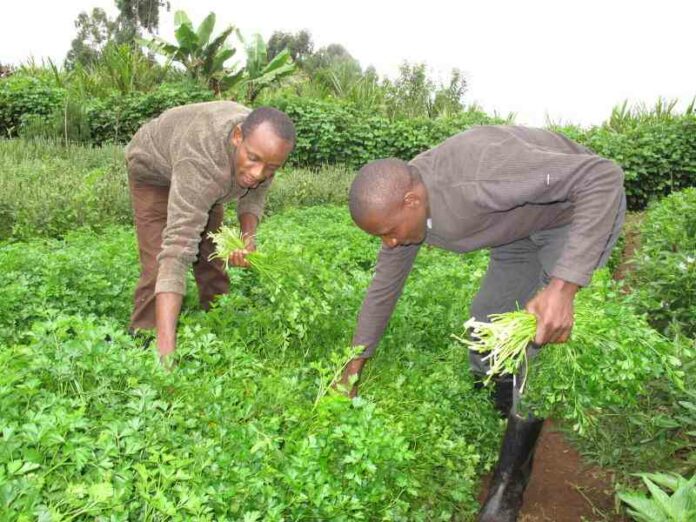Stephen Wachira is among thousands of farmers in Kenya who have found success in growing various types of herbs.
On his farm in Kimunya along Kenyatta Road, Kiambu County, the farmer grows parsley, among other herbs that enable him to earn extra coins.
He explains that he settled on the Parsley crop after months of searching for a more profitable crop.
With a capital of Sh15,000, he stepped into the venture guided by the information he obtained from farmers who were already carrying out the agribusiness.
”Parsley is a plant whose leaves are commonly used by hotels to garnish food. Most of the parsley is exported since local usage is small, but it is growing with time,’’ he explains.
According to him, one can either grow the plant from seeds or purchase seedlings from suppliers. The herb thrives well on well-drained soil rich in organic matter. He fertilizes his produce using chicken or goat manure.
From his experience, Wachira advises farmers intending to grow the herb to get good certified seeds.
Zakayo Mogotio: How I started Pepino Melon business with Sh700 capital
He notes that the best Italian Parsley seeds, which he grows, are sold for between Sh1,000 to Sh4,000, depending on the package.
The farmer adds that Parsley requires good care for good yields. After planting, a farmer should maintain consistent soil moisture, avoiding waterlogging. Water deeply whenever the top inch of the soil feels dry.
According to him, the herb takes three months to mature and can be harvested for up to six months. He says one kilogram of parsley goes for between Sh100 and Sh150 depending on market demand.
From his half-acre farm, he manages to make between Sh100,000 and Sh150,000 when he sells 1,000 kilos of the herb at a price of between Sh100 and Sh150.
Wachira explains that local demand for the herb is growing as some hotels and herbal juice makers have adopted it for food garnishing. He notes that most of the Parsley grown locally is destined for the export markets.
He advises people intending to try farming to first find a ready market, test their soil, and observe good management practices.
”Visit farmers in the same farming you want to venture in, get quality seeds, and always seek professional advice,’’ Wachira advised.








